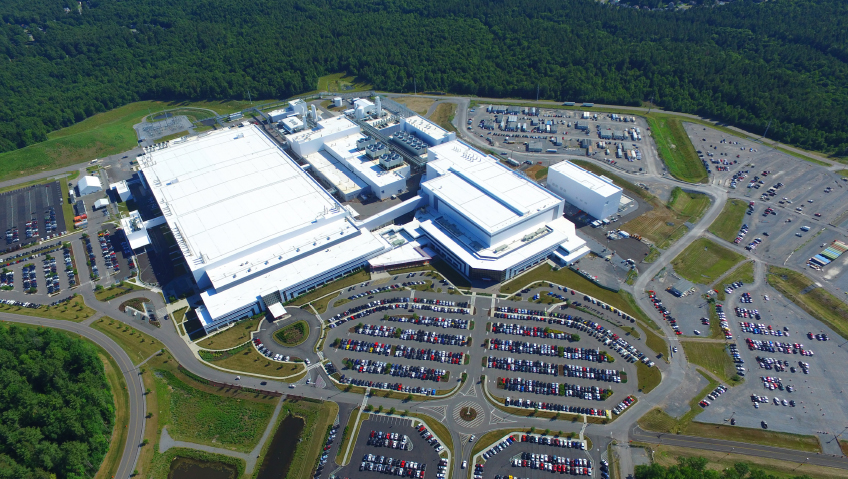For over a century, the Chamber of Business & Industry of Centre County (CBICC) has operated out of the borough of State College, Pennsylvania. The organization acts as both the chamber of commerce for Centre County—an area of over 159,000 Pennsylvanians—and its economic development organization. President and CEO Greg Scott and Vice President of Economic Development Todd Dolbin have worked in recent years to oversee economic development and build high level partnerships as the organization looks to nurture county business, attract new businesses, and identify key industry and workforce needs.
One recent initiative that CBICC has used to promote these ends is still underway. Since late 2023, Centre County has rolled out its EDSP (Economic Development Strategic Plan), described as a forward-thinking road map designed to support business expansion and retention.
“The launch of a county-wide strategic plan, after months of collaborating with just about everyone in the Centre County business community, was a transformative moment for us,” Scott shares. “We had businesses and townships stepping forward and signing resolutions and letters of support for the plan’s efforts to boost our economy by leveraging our strengths and focusing on our collective goals to grow and support businesses.”
The EDSP also seeks to promote better alignment with the county’s educational partners by targeting specific growth industries, as well as identifying infrastructure needs and challenges within them and how to grow the area while maintaining its strong quality of life.
“What we want to do,” Dolbin says, “is to identify and outline tangible actions that impact businesses [of all sizes],” so that everyone from major employers to smaller entrepreneurs can benefit from all that CBICC has to offer.
The roll-out of the EDSP coincides with the state of Pennsylvania enacting its own economic plan through its Department of Economic and Community Development. In many respects, Centre County’s plan seeks to act in alignment with the state’s. For example, one clustered industry segment identified in both the county and the state as having a strong competitive advantage is the sensor technology sector, which includes spectroscopy, ultrasound, and chromatography, as well as sustainable energy research through The Pennsylvania State University (Penn State). From there, both entities are looking to pull businesses in the industry together and amplify their strengths to put both Centre County and Pennsylvania overall on the map as sensor hubs and go-to locations for work in material sciences and research, rare earth minerals, and more.
Most recently, the CBICC is involved with new projects, including an early-stage concierge service wherein it is working with different industry partners to help grow nascent entrepreneurial businesses. This affords these businesses the help needed to navigate the resources available in the economic ecosystem, which Dolbin says can be a daunting and confusing process at times for those unfamiliar. This help includes sharing information for easier hand-offs, as well as securing workforce, locations, financing, or funding when needed. Centre County also maintains links to the ag/ag tech sector, a rapidly evolving industry that is always coming up with new technologies to help drive efficiencies.
One of the county’s major employers is the aforementioned Penn State, which boasts an incredible wealth of resources that can be accessed by Centre County’s business community. The Chamber makes sure that the university is part of the important decisions made for growing the county, believing that educational institutions are important in creating a pipeline to the Centre County workforce for skilled labor, professionals, and partnerships, so that local graduates have immediate business connections upon graduation.
The university has also enabled advanced manufacturing and technological innovation to become a core part of the county’s workforce. As Penn State is a global leader in research and development, a lot of early-stage businesses and new concepts are emerging from it, which are in turn the businesses that the Chamber wants to grow and retain in the area. Five university research labs also work with growing businesses and aim to bring additional opportunities home.
But life in Centre County is not just about work; Dolbin and Scott say that the county’s high quality of life is one of its trademark strengths. “We have small-town charm but significant and sizable amenities,” he shares. These include a strong outdoor recreation offering, with activities ranging from biking, hiking, skiing, and kayaking to just about anything else accessible outdoors. Along with its many business upsides, Penn State also draws a strong arts, entertainment, and cultural presence. Furthermore, the university sports a nationally recognized football program that brings in over 200,000 visitors every home weekend in the fall.
Centre County is also a more affordable area compared to other larger cities, and boasts a plethora of community activities and events, making it ideal for incoming or existing workers to settle down and raise a family.
All of these advantages combine to help CBICC and the county continue to prosper even through challenging times. Pennsylvania is currently seeing a low unemployment rate, which Scott says can be seen as both positive and negative. When it comes to growth, a low rate of around three percent (the state’s current rate) can be challenging, so one of the Chamber’s solutions is to partner closely with Penn State such that students build more direct contact with local businesses. This way, there’s a stronger likelihood of retaining these students after their graduation, thereby growing the local workforce further. Talent retention is a big focus of the community, as well as the importance of affordable housing, the latter also being an ongoing issue at the national level. Part of the plan to address housing locally for CBICC is developing more opportunities for a wide range of income levels, so that area employers can attract outside talent and give workers a place to stay and lay down roots.
As 2025 unfolds, CBICC will be focusing on growing the state’s sensor technology industry, as well as focusing on infrastructure. Notably with infrastructure, Scott says that work will be done to help grow State College’s Airport so as to increase flights and other travel opportunities, along with general county accessibility, to support a growing population. Partner organization Penn State is currently pursuing a sizable federal grant in partnership with Westinghouse Electric Company to develop micro nuclear reactors, ones that are small enough to transport by truck and provide power to remote sites for over eight years. If successful, Penn State will be one of the first universities in America to develop this technology, another potential feather in the cap for Centre County.
Looking further ahead, Dolbin and Scott say that CBICC will look to strengthen its workforce development initiatives and partnerships with its local education providers, from high schools to universities and beyond. Business attraction will also stay top of mind, as the Chamber looks to attract new types of businesses to the area while building on its existing strengths (i.e. the sensor technology industry). This will be supported through targeted expansion programs and recurring meetings with major employers to keep them engaged in the Centre County community.
Finally, the Chamber will continue to emphasize the importance of entrepreneurship and innovation by working with startup companies. “[Startups] are the next major anchor employers, if we can grow them and have them become a major asset in our community,” says Dolbin. There is no shortage of opportunities waiting for new and innovative business ventures in Centre County, especially with the CBICC ever ready to support its burgeoning workforce and prosperous community.






